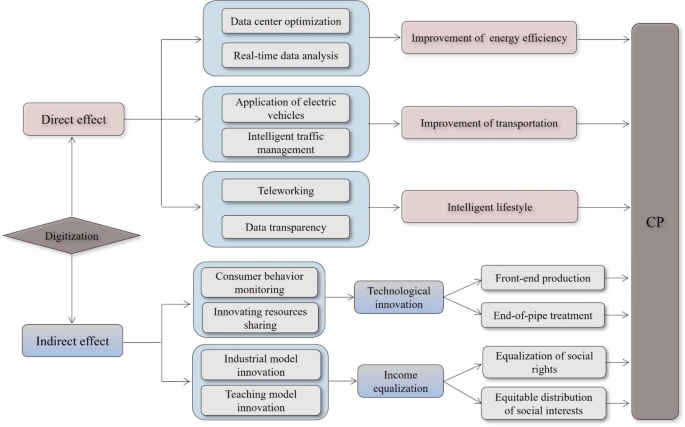
Unlocking the Potential of Green Innovation to Transform Carbon Productivity Worldwide
In an era driven by the pressing need to combat climate change and reduce greenhouse gas emissions, digital innovation has emerged as a game-changer. From renewable energy solutions to smart cities, we are witnessing the unfolding of a revolution in carbon productivity. This article explores how digital innovation is unlocking green potential and transforming carbon productivity worldwide.
Key Takeaways:
The Rise of Digital Innovation in the Renewable Energy Sector
Renewable energy sources such as solar, wind, and hydropower have long been recognized as sustainable alternatives to fossil fuels. However, their widespread adoption has been hindered by technological limitations and high costs. Enter digital innovation, which is paving the way for an accelerated transition to clean energy.
Through advanced analytics, machine learning, and IoT-enabled systems, renewable energy producers can optimize power generation and distribution. By leveraging real-time data, operators can monitor and enhance the performance of solar panels, wind turbines, and other renewable energy assets. This leads to increased efficiency, reduced downtime, and ultimately, lower costs for consumers.
Beyond energy production, digital innovation also plays a crucial role in energy management. Smart grids and blockchain technology enable the tracking and trading of renewable energy, fostering a decentralized and more resilient energy ecosystem. Homeowners with solar panels can sell excess electricity back to the grid, empowering individuals and communities to become active participants in the green energy revolution.
The Role of IoT in Building Sustainable Cities
As the world increasingly urbanizes, the concept of smart cities has gained traction. Digital innovation, powered by the Internet of Things (IoT), is instrumental in achieving sustainability goals and addressing environmental challenges associated with urban areas.
The implementation of IoT devices and sensors allows for the efficient utilization of resources like water, energy, and waste management. Smart buildings equipped with energy-efficient systems automatically regulate lighting, heating, and cooling based on occupancy and weather conditions. Intelligent irrigation systems adapt water usage based on soil moisture levels, reducing waste and promoting water conservation.
Furthermore, the integration of smart transportation systems optimizes traffic flow, reduces carbon emissions, and enhances the overall mobility experience. With the help of real-time data and advanced algorithms, digital platforms provide commuters with information on the fastest and greenest travel routes, encouraging the use of public transportation and cycling.
Data Analytics and Artificial Intelligence Driving Resource Efficiency
In a world that is bursting at the seams with data, the ability to extract meaningful insights and optimize resource allocation is paramount. This is where data analytics and artificial intelligence (AI) step in to revolutionize carbon productivity.
Advanced analytics tools, powered by AI algorithms, can crunch vast amounts of data to identify and eliminate inefficiencies across various sectors. Predictive analytics models help businesses forecast energy consumption patterns and make informed decisions that reduce waste and save costs. For example, AI-powered air conditioning systems can automatically adjust cooling based on occupancy rates and weather forecasts, minimizing energy consumption.
Addi
Source: insidertechno.com